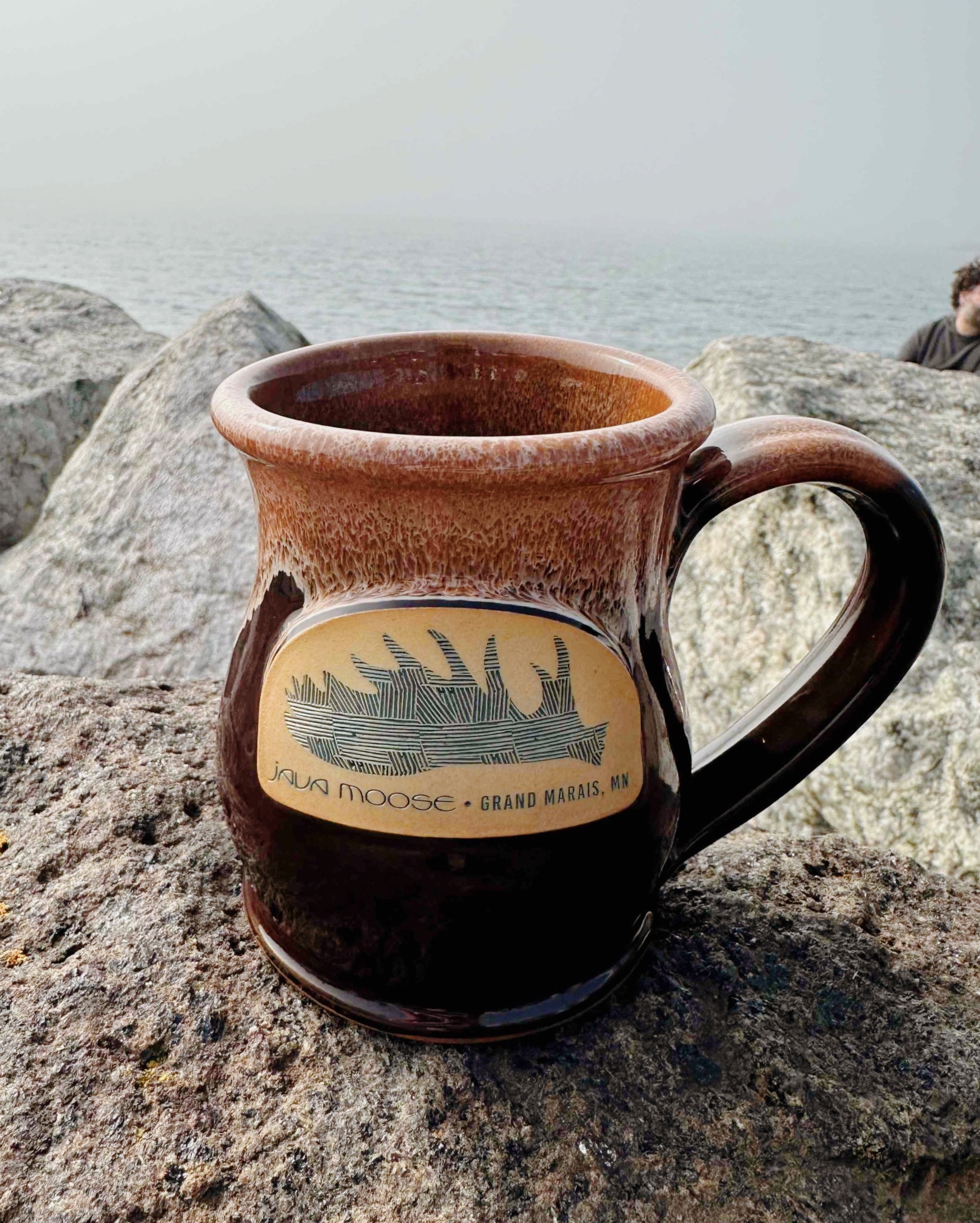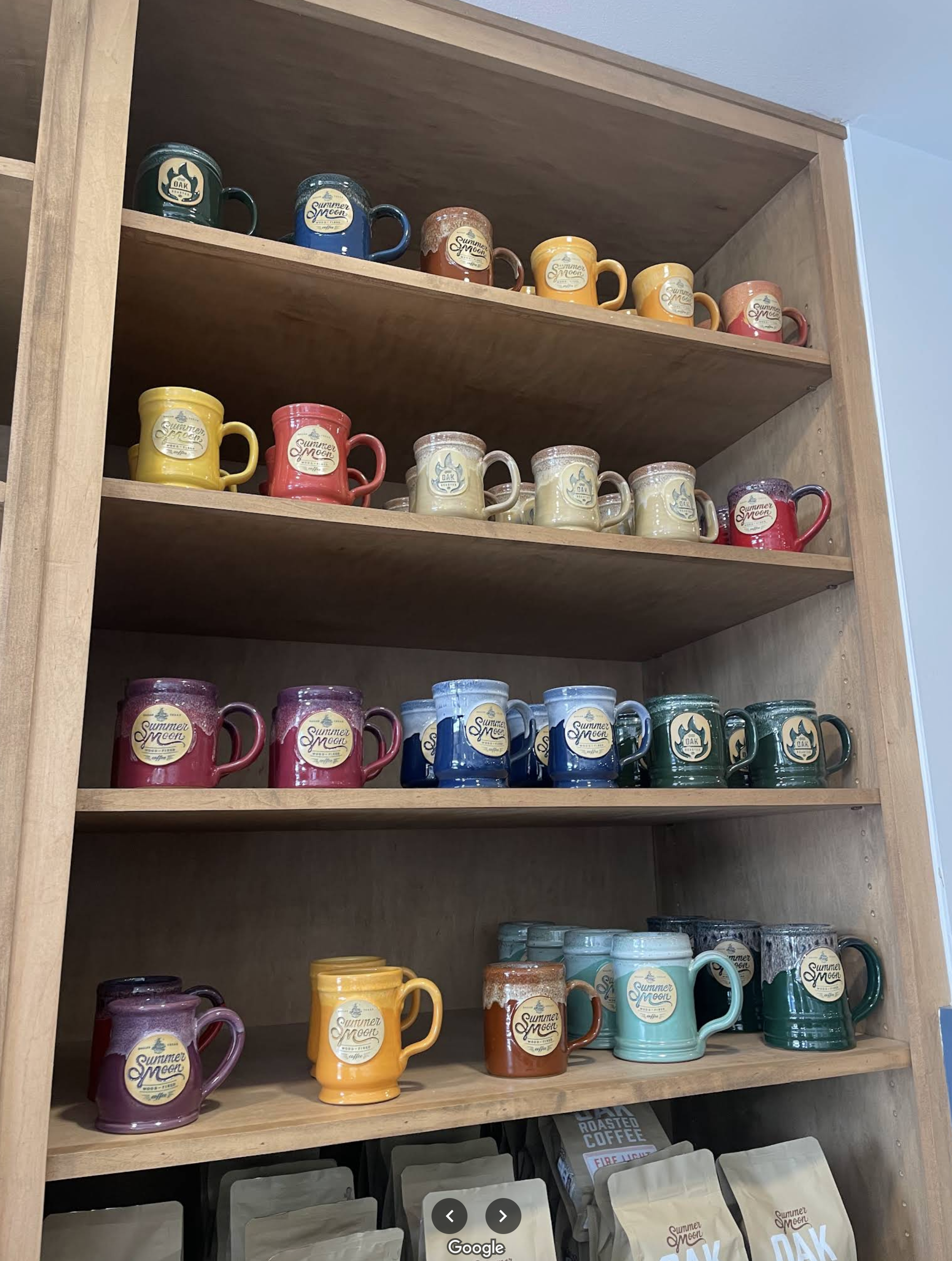By Lee Egerstrom
Economic Development Fellow
[email protected]
A company of artists in St. Paul is proving that making art objects can sustain a small business, that entrepreneurs can survive economic cycles, and that quality can still trump quantity in this age of big box stores and mass marketing.
Deneen Pottery is a family owned business that has endured various trials and tribulations since 1972. It makes hand-thrown stoneware products for institutional and business customers who want to exhibit glaze engraved logos, which result from a trademark protected process that Deneen master potters invented.
The biggest categories of Deneen’s 2,700 customers are hospitality industry companies such as bed and breakfasts, country inns and golf courses. Right behind are college bookstores, corporations that want promotional items for products or their corporate image, and restaurants. Renaissance festivals and community events that appeal to tourists who may be collectors is another important but smaller category, and Deneen has a small number of retailers as customers who specialize in merchandise for tourists.
Coffee and tea mugs are the largest selling pottery products. Each is an art piece, shaped and fired by 24 pairs of hands from clay and the potter’s wheel on through to packaging and shipping, and each is especially popular with collectors.
That became evident during the end-of-semester and holiday break season at Century College, the community college and technical school in White Bear Lake. Students were buying, returning and swapping textbooks in the Century College bookstore and picking up gifts for the holiday season that proudly showed the college’s logo.
Minnesota’s liberal arts and community colleges are special customers for the pottery works, said Peter Deneen, founder and president. About 30 of Deneen Pottery’s 200 academic customers are Minnesota college bookstores, he said, and most are private NCAA Division III schools or public community colleges.
“No licensing problems with big conferences,” he said. “The bookstores make their own purchasing decisions. This eliminates a lot of complications and paperwork.”
The University of St. Thomas has a special place in the Deneen family’s hearts, said both Peter and his son Niles, the vice president for marketing. In discussing an order for the St. Thomas Bookstore a few years back, [bookstore manager, Tony Erickson] alerted them to a scheduled tri-state trade show for college bookstores at a St. Paul hotel.
Northfield has become an important center for Deneen Pottery from such networking contacts. Both Carlton College and St. Olaf College are steady customers for high quality stoneware.
Century College is among institutional customers that learned about Deneen products from the bookstore fair, said Jill Hanson, who purchases for the bookstore. Most of the retail customers for the upscale mugs and ceramics are faculty and staff, she said. The make especially popular gift items for important visitors and guest speakers on campus.
Jeanine Riley at St. Thomas said the St. Paul campus bookstore has high-quality mugs and some vases on hand for visitors, faculty and staff shoppers. Students tend to buy less expensive mugs with “St. Thomas Mom” or similar logos, she said.
But parents, faculty and staff “go upscale,” either for themselves or for gifts, Riley added. “We see parents buying these when they brings their students to school, and homecoming is big with alumni sales and graduation is also good for sales.
“These are emotional items,” she said.
Information about Deneen products, the artistic processes involved, and a directory of upscale inns and bed and breakfasts where personalized mugs are sold as collectibles can be found at www.deneenpottery.com.
Minnesota 2020 promotes Minnesota made and sold products each year through the online Minnesota Gift Guide. Research shows that returns to the Minnesota and community economies are far greater from Minnesota made and sold products than derived from local markups of other non-local retail sales.
Deneen Pottery is a local manufacturer. What economists call “upstream,” “downstream” and value-added benefits from Deneen are more evident than at most retail establishments.
Key ingredients at a pottery factory involve clay. Deneen gets most of it clay supplies from two Twin Cities firms – Minnesota Clay in Edina and Continental Clay, Minneapolis. Packaging supplies are mostly local, and the community benefits from the 25 jobs this small business generates.
A base of Minnesota customers, such as the colleges and such companies as Pillsbury, General Mills and Land O’Lakes, benefit in various ways from the products sold or used for promotions.
Deneen Pottery started as Cloth & Clay Inc. in 1972. It moved to different sites in St. Paul over the years, filed for bankruptcy, had its assets sold to a holding company, and then came back as Deneen Pottery but in its original form in 1992 when the holding company shut down its operating unit.
Four former potters are now following their own dreams and have started pottery companies in Minnesota and Wisconsin.
Local and state economic development professionals and policy makers would get mixed messages about how to help entrepreneurs like the Deneen family. The city of St. Paul helped with finding factory space and the federal Small Business Administration did help their company financially in an earlier form that didn’t succeed.
But the company is back, still in St. Paul, strictly operating on cash flow. Market growth of new customers has helped it weather the current recession despite 10 to 15 percent sales reductions at many of its repeat customers.
Looking back, Peter Deneen said the company has constantly confronted the two universal problems for entrepreneurs – access to capital and marketing plans. Without the latter, a company can’t handle the capital it does access, he said.
In the end, he added, what makes both problems manageable is having products that people want. That becomes apparent in the bookstores at Century College and St. Thomas.






